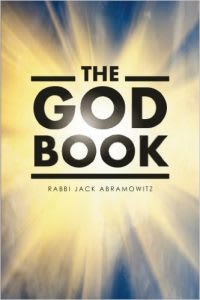16. Multiple Meanings in the Creation Account
The articles in this series are based upon ideas expressed in the Rambam’s Moreh Nevuchim (The Guide for the Perplexed). Numbers in brackets represent the book and chapter of Moreh Nevuchim where these ideas are discussed.
Many words in the creation account have more than one meaning. For example, the Torah tells us (Genesis 1:5) that God called the light day (yom) and the darkness night, then "it was evening and it was morning: one day (yom)." As with the English word "day," the Hebrew word "yom" has two meanings: the daylight hours and a 24-hour period. Similarly, the four "elements" of creation - eretz (earth), mayim (water), ruach (air) and choshech (fire) - may have more than one meaning, depending on the context. [II, 30]
We discussed in the previous installment why choshech - normally translated as darkness - means fire. But this is only the case in Genesis 1:2: "and choshech on the face of the water." In 1:5 - "and the choshech He called night" - it clearly refers to darkness.
The phrase "ruach Elohim" is normally translated as "the spirit of God" but the Rambam tells us that here it refers to actual air. If that's the case, why does the Torah attach God's Name to it? The Rambam explains that it's because the air is described as being in motion and the motion of air is typically ascribed to God. To demonstrate this point, the Rambam introduces several verses that do this, including Exodus 10:19 ("God turned a very strong west wind..."), Exodus 15:10 ("You blew with Your wind..."), and Numbers 11:31 ("A wind went forth from God...").
When the Torah tells us that God divided the waters, that doesn't mean just physically, with some water in one place and other water elsewhere. Rather, God divided them in that He gave them different natures. One type of water He gathered and it became what we call the seas. Other types of "water" He used to create the firmament and still others He placed above the firmament.
Now, as for the firmament ("rakia" in Hebrew), Genesis 1:8 tells us that this is what God called "shamayim" (the heavens). But shamayim also refers to that which God initially created, as recorded in Genesis 1:1. Here is an example of two different meanings for the word "shamayim." That "shamayim" and "rakia" are not identical is evident from such verses as Genesis 1:17 and 1:20, which refer to "the firmament of the heavens."
These multiple meanings should not surprise readers. As shown in our introductory example, both English and Hebrew have multiple meanings for the word day/yom, which we take for granted. The same is true of the word "earth," which we use for both soil and the entire planet. It should therefore be simple enough for us to accept that such words as choshech, mayim and shamayim can and do mean different things in different contexts.
The creation account is deceptively confusing. It becomes perhaps the tiniest bit clearer once we come to the realization that words we think we understand may actually mean something else entirely.

